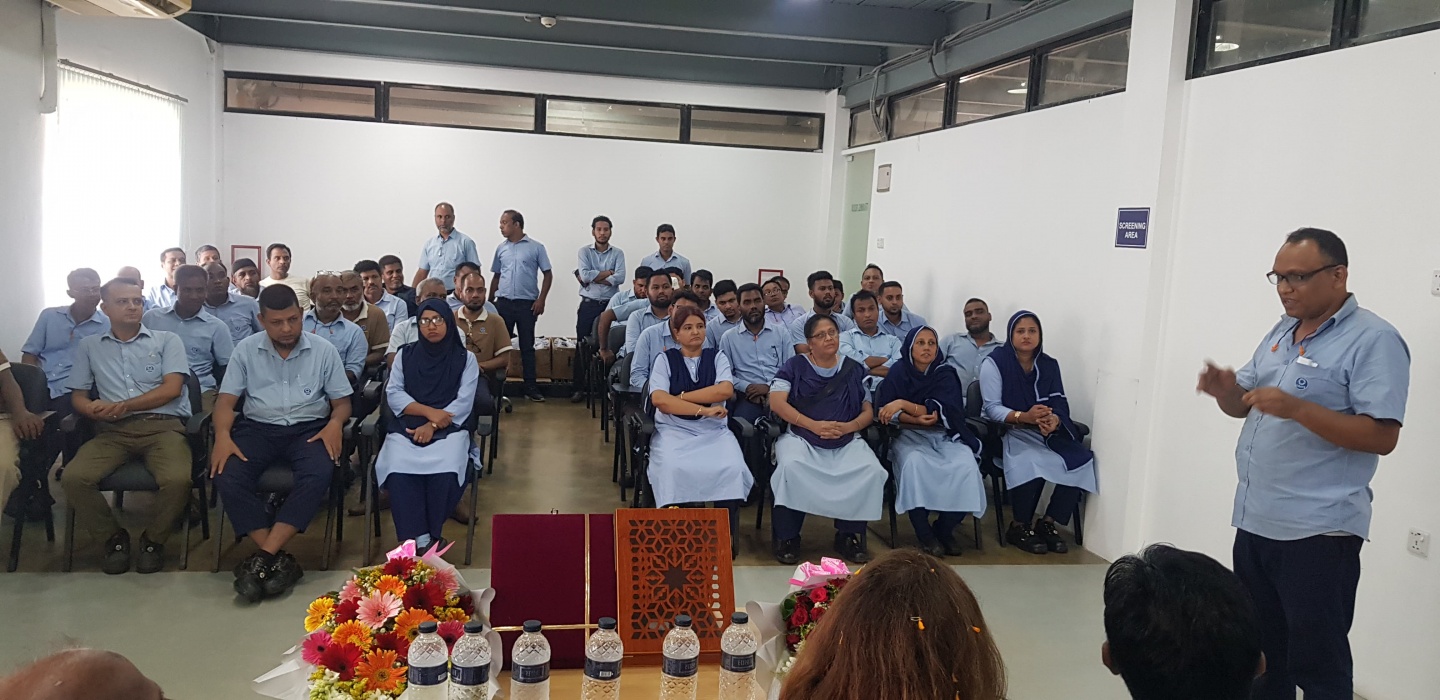Read this article in:
English
5 June, 2024In an effort to strengthen supply chain industrial relations, IndustriALL led a mission to Bangladesh, focusing on collective bargaining, legally binding agreements and effective dispute resolution.
ACT Bangladesh currently operates an interim dispute resolution mechanism (DRM) for all complaints not related to health and safety. All health and safety complaints fall under the scope of the Accord/RSC. On 29 May, ACT signatory brands and trade met to discuss the priorities for effective dispute resolution.
On 29 May, ACT signatory brands and trade unions met to discuss the priorities for effective dispute resolution. Fifteen of IndustriALL’s affiliates and representatives from H&M, Big W, Next, Kmart, Inditex, Primark, Tesco, Tchibo, PVH, G- Star Raw, C&A, ASOS, Bestseller and Sainsbury’s participated in the meeting. Union members strongly advocated for brands to play a more active role in safeguarding workers' rights to freedom of association and preventing the blacklisting of union-active workers.
The head of the Ready Made Garment Sustainability Council (RSC) complaints unit, Ovijit Mutsuddi, gave an update on the Accord/RSC pilot. Under the International Accord, the parties have agreed to pilot the expansion of the complaints mechanism and the RSC Board of Directors approved the pilot to start in Bangladesh.
IndustriALL textile and garment director Christina Hajagos-Clausen met with the newly elected leadership of the Bangladesh Garment Manufacturers and Exporters Association. Emphasising the need for sectoral bargaining, she highlighted the importance of supporting the Injury Insurance Pilot and maintaining collaborative efforts for industry safety under the Accord/RSC.
“IndustriALL continues to promote strong supply chain industrial relations in Bangladesh,”
said Hajagos-Clausen.
“We call on industry and brands to strengthen our joint engagement on building and fire safety, occupational health and safety, and to engage in sectoral negotiations for long-term benefits to workers in the textile, garment, leather, and shoe industries.”
The mission also included a warm welcome in Chattogram from leaders of the IndustriALL Bangladesh Council (IBC), including IBC President A M Nazimuddin, BGTLWF President Kutubuddin Ahmed, and BTGWL Chattogram wing President Md. Belal Hossain.
The visit concluded with a visit to Coats Bangladesh, where the Coats Bangladesh Employees Union shared their success in reducing the number of precarious workers through strong collective bargaining agreements.
“Previously, over 50 percent of Coats factory workers were on contract,”
said Sekh Abdul Mannan, Coats union president.
“After IndustriALL’s intervention in 2020, we negotiated to reduce contract workers to less than ten per cent. Our work in the global trade union network connects us to other unions in the Coats supply chain, and we urge Coats to work with IndustriALL to negotiate a global framework agreement.”






